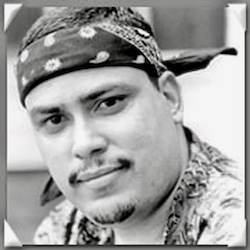 William Nieves On December 22, 1992, Eric McAiley, a 20-year-old drug dealer, was fatally shot three times in the back outside his home in Huntington Park, Philadelphia.
A prostitute and crack addict told police that she saw the shooting that it involved two African-American men in a Cadillac who shot McAiley from the car.
Nine months later, the woman, Dawn Newman, was located again by police and, while facing five fugitive warrants, picked Nieves out of a photo lineup as the gunman.
Nieves had dealt and used drugs in the past and knew McAiley, but he denied any involvement in the murder. At the time, he was enrolled in classes at Community College of Philadelphia.
He was charged with the murder on September 15, 1993.
In July 1995, Nieves went to trial where the prostitute, Dawn Newman, testified that she saw a Cadillac pull up to McAiley and Nieves step out and shoot him. Assistant District Attorney Roger King also presented McAiley’s nephew, who said that McAiley sold drugs for Nieves.
Further, a jailhouse snitch said that he was in a bar earlier in the evening with McAiley and Nieves and heard Nieves tell McAiley: “Better get me my (obscenity) money. I’m not playing with you.”
Nieves was convicted on July 15, 1995 and on July 26 the Philadelphia County jury sentenced him to death.
King would achieve a measure of fame as the prosecutor who sent more men to death row in Pennsylvania than any other under the administration of Philadelphia District Attorney Lynne Abraham, who was known as “America’s Deadliest DA.” He also had several convictions reversed, including the convictions of Orlando Maisonet
and Chester Hollman III.
While in prison, Nieves studied criminal law. At his trial, his defense attorney, who had little trial experience, told him that if he testified, the prosecution would be able to question him about a string of former convictions to impeach his credibility.
Based on his research, Nieves concluded that his former convictions would have been inadmissible. On appeal, he contended his attorney’s advice not to testify demonstrated ineffective legal assistance.
The case was sent back for a hearing and on February 17, 2000, the Pennsylvania Supreme Court overturned his death sentence and conviction. The court held that the convictions “of drug trafficking and firearms offenses did not involve dishonesty or false statements and therefore would not have been admissible to impeach his credibility.”
In preparing for a second trial, Nieves’ new attorney found two witnesses who testified that two men drove up to McAiley in a white Cadillac and that one of them fired the fatal shots. The two men were tall, slender African Americans—unlike Nieves, who was stocky and of Puerto Rican descent.
On October 20, 2000, Nieves was acquitted by a jury and was released from prison.
Nieves died October 8, 2005 of complications of Hepatitis C, a liver disease first diagnosed, but never properly treated, while he was in prison.
– Maurice Possley
|